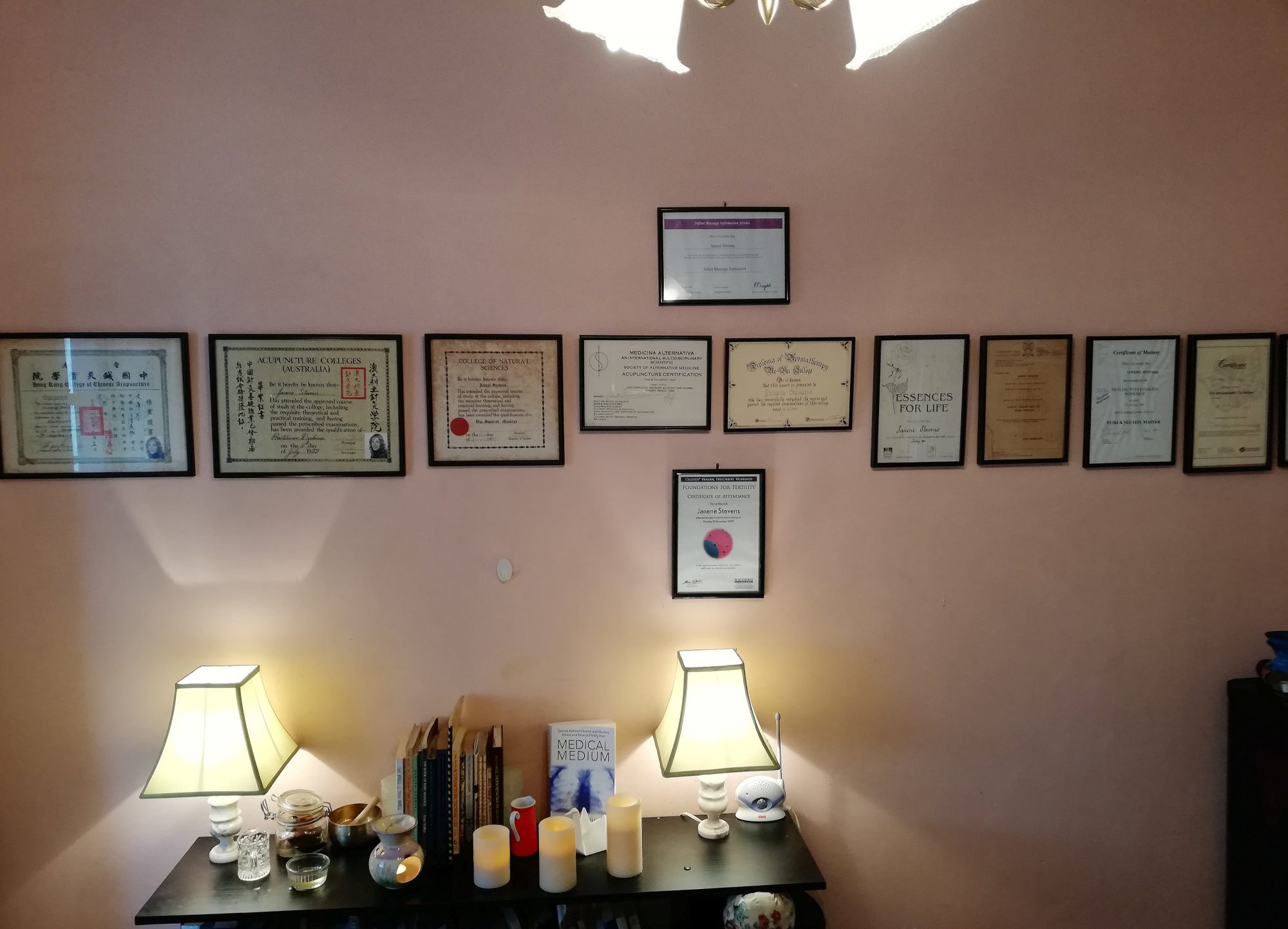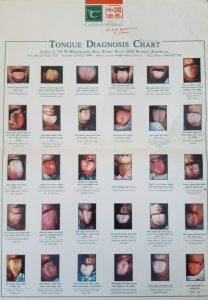Treating Back Pain – Changes to Medical Guidelines
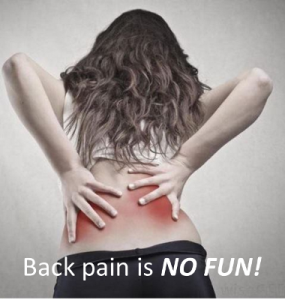 Treating back pain is big business. And there have just been major changes to the guidelines on how to do it.
Treating back pain is big business. And there have just been major changes to the guidelines on how to do it.
Wendy Harmer discussed back pain with Professor Chris Marr on ABC Radio Sydney this morning. Just take the highlights:
- 25% of Australians have experienced lower back pain on a daily basis.
- Half of us have had back pain in the last month.
- Back pain is the leading reason why people leave the workforce early.
Old guidelines for treating back pain
Traditional guidelines, which have been in place for decades, recommended simple pain medicines such as paracetamol or anti-inflammatories. Surgery was also an option for more severe cases.
But now the guidelines have changed for two main reasons.
- There is ‘an escalating prescription opioid crisis’. In other words, people are addicted to painkillers!
- Research shows most pain medicines have little to no effect compared to placebo for people with lower back pain.
Revised guidelines
Dr Traeger, a researcher from the Musculoskeletal Health Group at the University of Sydney’s School of Public Health, says the new guidelines represent a major shift in treatment.
“If you have an uncomplicated case of recent-onset LBP (lower back pain), your doctor may now simply provide advice on how to remain active and non-drug methods for pain relief such as heat and massage, and arrange to see you in two weeks to make sure the pain has settled.
“If your pain started a long time ago, they might suggest treatments such as yoga, exercise or mindfulness as treatment. Other effective options could include spinal manipulation, acupuncture, or multi-disciplinary rehabilitation programs.
It seems that mainstream medical advice is at last recognising the value of natural therapies for treating back pain.
Challenges of treating back pain in the Australian medical system
But there are still problems with the Australian system. Both Professor Chris Marr and Dr Traeger are concerned that Medicare does not fund the newly recommended treatments. A change in policy is required to make them more affordable.
Ironically, at the same time private health funds will be cutting coverage of a whole range of natural therapies. The Sydney Morning Herald reports that from 2019 they won’t cover therapies ‘including aromatherapy, Bowen therapy, Buteyko, Feldenkrais, herbalism, homeopathy, iridology, kinesiology, naturopathy, Pilates, reflexology, Rolfing, shiatsu, tai chi and yoga.‘
Notice the overlap with the new recommended treatments for back pain?
There won’t be any changes until 2019. And it appears that health funds may still continue to cover acupuncture and remedial massage. So the impact on clients at A Holistic Healing Centre is limited. But it’s sad to see policy so poorly aligned with both our philosophy and new medical guidelines.
The Australian Traditional Medicine Society is encouraging consumers to make their support for natural therapies clear. Please visit their Facebook page to learn more.
Get Better Sleep – How the Chinese Meridian Clock Can Help
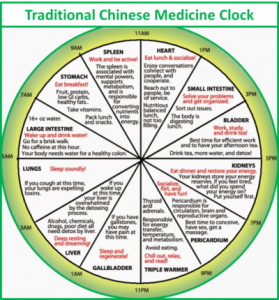 Using the Chinese meridian clock can help you understand and fix your sleep issues.
Using the Chinese meridian clock can help you understand and fix your sleep issues.
We all know people who can’t get to sleep, but that’s not the only sleep problem. All too often, people get off to sleep easily, but find they wake at a certain time each night.
With the Chinese meridian clock, each organ of the body has its own meridian. It also has a specific time of day or night, and emotions connected with it. If you’re waking up at the same time every night, you can check what organ and meridian that is. Then understand what in your life is affecting that. Now you know what challenge you need to tackle. So for example:
11:00pm to 1:00am – gallbladder
The gallbladder relates to repressed anger and resentment. Maybe you’re having bitter and hard thoughts which you’re not sharing.
A common example is when you have kids who interrupt the flow of your work and your day. You don’t necessarily blame them for that. You may want to be there for them. But at the same time you have your own priorities and needs, which you never get to. That could start affecting your gallbladder meridian, so then you find yourself waking up at this time of night.
Of course there are plenty of other reasons you might be resentful – so don’t just blame your kids! Have a think about what’s happening in all areas of your life.
1:00am to 3:00am – liver
The emotion of the liver is anger and frustration. That’s a bit different from resentment – it’s not necessarily repressed!
Another issue here is toxins. The liver cleans toxins out of the body. So if you’ve been drinking too much alcohol and having other chemicals, that can be related to waking in this period. You may need to cut out or cut back
So it can be either emotional or lifestyle – or a combination. Look at your life and see what you can fix.
3:00am to 5:00am – lung
The emotion of the lungs is sadness and grief.
You might have lost somebody. Not just to death, you could also be mourning the loss of a friendship, or of a time in your life.
Grief is natural. It does heal slowly. It’s not as easy to fix as giving up the drink, but if you know why you’re waking up, it can help a bit.
5:00am to 7:00am –large intestine
This is your bowels. Be honest, how many of us wake up in the morning and the first thing we do is empty our bowels.
It’s the same thing, emotionally. Try letting go of stuff you don’t want or need, rather than holding on.
It’s really quite literal! Letting go, change and transformation. Final separation!
It’s not just night either. There may be particular times of the day where you feel tired and have no energy. That’s also related to your organs on the Chinese meridian clock.
The 3 o’clock slump is really common. That’s the start of the bladder’s time, then directly after comes the kidney. Two water elements.
Emotionally, the bladder is anxiety. So people might get anxious. And the kidneys are connected to fear. So if people have a lot of fear that can affect your kidney energy.
The Chinese believe people should experience every emotion during the day. But sometimes people get stuck in one or two emotions. They feel those most of the time and sometimes they don’t feel any of the other emotions. Which means they’re not balanced.
So when someone comes to me saying they’re waking up at the same time every night, how do I help?First off, I suggest it’s related to whatever emotion is linked to that time. Usually, they find that there’s a resonance in their lives? They say, “Ah!” Then they go into the story of what’s been happening lately and why they’ve been feeling that way.
Sometimes just listening is enough to help. They just need a guide to get started. Sometimes I give them some advice as to how to transform things so that the sleep’s not affected. An acupuncture treatment where, I focus on meridians where there’s an issue, is very helpful.
General Sleep Advice
Also, in terms of general advice, there’s a few things you can try at home.
Baths and Showers
Bathing just before bed is a great way to relax yourself. It can also help wash away cares, so they don’t wake you up later in the night!
Showers are quicker if you’re short of time, but personally I prefer a bath. With a tub of water, you can add things like Epsom salts, which is very rich in magnesium. That helps relax the muscles – and you! – before you go to sleep. You can also put a combination of different oils in for your bath. Either general relaxing ones like lavender, or a I can make up a mix just for you and your needs.
Meditation tapes
Listening to these before you go to sleep can help. It’s a break and quiet time, which can help you relax. But more than that, it gives you some positive thoughts and a good attitude for tomorrow. So you leave all the disasters of the day behind, have more positive dreams and create a better tomorrow.
Why Acupuncturists Look at Your Tongue
Why do acupuncturists look at your tongue?
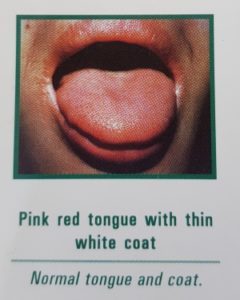 Acupuncture and Chinese medicine began thousands of years ago. The early practitioners had no x-rays, no blood tests, no easy way to find out what was going on inside the body. But they did have the tongue.
Acupuncture and Chinese medicine began thousands of years ago. The early practitioners had no x-rays, no blood tests, no easy way to find out what was going on inside the body. But they did have the tongue.
Your tongue is in your mouth – inside your body – but it’s visible from outside. It’s the only muscle you have which isn’t hidden by skin. What’s more, it doesn’t hurt or harm you in any way to show someone your tongue. That’s an important factor for holistic healers like me who want to make things better, not worse.
If you look at them, tongues are actually very varied. Here’s a chart I still have from when I studied acupuncture. Everyone’s tongue is different! And if you look at your tongue once a day for a week or so, you’ll find your tongue changes over time too. That’s what makes it such a good way to look at your overall health.
Here’s a chart I got as an acupuncture student which shows a wide range of tongues – none of them healthy except the one at top left!
Main elements of tongue diagnosis
There are three main elements acupuncturists consider when they look at your tongue – its shape, its colour and the coating on it.
Tongue Shape
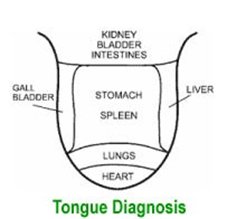 Is your tongue long and thin, or shorter? Is it stiff, or does it move easily? Can you touch the tip of your nose? (Only some of us can, but it’s always fun to watch kids trying!)
Is your tongue long and thin, or shorter? Is it stiff, or does it move easily? Can you touch the tip of your nose? (Only some of us can, but it’s always fun to watch kids trying!)
If your tongue is swollen, it might be because your fluid metabolism is off-balance, which can affect your emotions.
Or maybe the coating of your tongue is cracked, meaning heat or dryness. What that means depends on the size, quality and location of the cracks. Just like the foot, different parts of the tongue relate to different parts of your body. So when an acupuncturist or Chinese medicine practitioner examines your tongue, they can tell which part of your body is out of balance.
Tongue Colour
A deeper colour in the tongue means more heat. That might mean inflammation, infection or hyperactivity in one organ.
If your tongue is very light in colour, you may have the opposite problem. Often it means your immune system is low. That’s often a result of overstress and overwork. It often happens if you’re having chemotherapy too – the chemicals take a lot out of your body and it shows!
Tongue Coating
There’s a number of things to look at here:
- How thick is the coating?
- What colour is it?
- Is it consistent across the whole tongue or does it have spots?
When an acupuncturist looks at your tongue, they assess all these things. As for me, I work holistically so I often find out many things simply by asking you. But sometimes your body knows better than you do what the problem is, so checking your tongue can be really useful.
Also just for fun, check out this article about Miley Cyrus’ tongue. It certainly shows how one person’s tongue can change when their health does!
So if your tongue feels or looks different, get in touch. It might mean you need to tackle a serious health issue.



Acupuncture for Menopause – as part of a Holistic Natural Treatment Plan
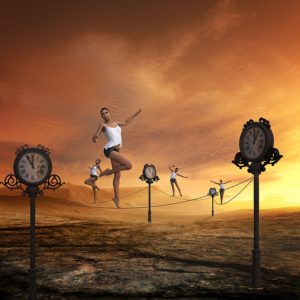
Menopause affects all women, so of course there’s great interest in treating it naturally. And the best natural treatment is a combination of acupuncture, aromatherapy and massage. All three are equally useful in very different ways. Let’s start with a quick discussion of acupuncture for menopause.
Why use acupuncture for menopause?
When we use acupuncture, what we’re doing is balancing the body’s energies a bit like giving your car a tune up. The is usually a bit topsy turvy during menopause, because there’s so much change going on.
The main meridians used in acupuncture for menopause are the liver and the spleen. It’s interesting to look at the emotions they relate to.
- The liver is associated with anger and frustration – and we’re all quite aware that menopausal women have a reputation for being a little angry sometimes!
- The spleen is even more interesting. We have the phrase ‘to vent your spleen’ meaning to get rid of anger, but in acupuncture, the spleen is actually associated with the emotion of worry.
Potentially the link here is that you might be worrying about your life and your future and how things are changing. For many women, menopause is a time of change – almost the end of an era. You lose the capability of having children, something which many women think is just core to being a woman. So it’s easy to worry about your purpose in life after menopause. Often it is a time of the empty nest & finding new life, lifestyle, child free which may have been the main purpose of living for many woman.
In case you’re wondering, Western scientific research has confirmed the value of acupuncture in managing menopause.
Other natural treatments for menopause
Geranium oil for hormonal balance
Moving on from acupuncture, aromatherapy is very useful during the hormonal changes of menopause. Many of the essential oils will help with settling your hormonal balances and making you calmer. A great oil to use for this kind of thing is geranium oil. Geranium is good as both a hormonal balancer, it is also good for balancing oily/dry skin & helps with emotional balance when on the “roller coaster” ups & downs in life.
Sage tea to treat night sweats
Interestingly one thing I should mention is sage tea. I like to get mine in bulk from the Indian Herb and Spice Shop, but you can also get sage tea in most health food shops.
Use sage tea specifically to treat hot flashes and night sweats. I remember one client who had the most terrible night sweats. She didn’t have very many hot flashes in the day but she was soaking the bedsheets every night, having to get up and change them. I gave her a number of treatments, including aromatherapy and acupuncture for her menopausal symptoms, then I provided her with sage tea to take home as well. Within two to three weeks, her night sweats were gone. Of course she still had to change the sheets sometimes, but only the way all of us do! It was a very effective treatment.
Another thing I do for menopausal patients is to put together a cream with a number of ingredients. It includes wild yam, which has natural progesterone. According to Dr. John Lee, most doctors give women oestrogen for bone density loss that is common at this time, where what they need is progesterone. As long as you take natural progesterone, your body can convert it to oestrogen, if needed. Whereas synthetic progestins in HRT can’t be converted.
Finally, I use some balancing aromatherapy oils at this time – geranium, rose, lavender, a bit of rosemary for remembrance, and maybe a bit of clary sage (the natural high oil).
Reducing forgetfulness
The rosemary gives another link to using acupuncture for menopause here – because the spleen meridian is associated with memory as well as worry. We all know that one of the things women experience in menopause is absent mindedness – a loss of short term memory. They find it hard to keep up with the multitude of different things that they have to keep in their heads the whole day multi-tasking.
Thyroid issues and weight gain
Another common issue during menopause is weight gain. This is often related to an underactive thyroid. So how do we treat thyroid issues naturally?
Metaphysically the thyroid is about starting to do what you want to do with your life instead of sacrificing yourself for family. Menopause is a time when a lot of women rediscover themselves and spread their wings. It’s like a caterpillar turning into a butterfly. It can be painful and you may need some help through the immediate symptoms of menopause, but any time of change is a time of opportunity.
And finally…
The more balanced you are, the better you are with your diet, your life, and your lifestyle, the better! The most balanced women experience far less extreme symptoms as they go through menopause. If that’s you, congratulations and keep it up! Or maybe, like so many of us, menopause has you a bit out of control? That’s fine too. We all need help at some stage of our lives – and that’s often menopause, because of all the change going on. But we’re all still different. That’s why I like to spend a bit of time discussing you, your concerns, your experiences, so I can work out a treatment just for you.
If you’d like a personalised treatment of aromatherapy, massage and acupuncture for menopause, just get in touch. I’d love to help you feel better. About the world. And about yourself.
Fragrance Oils vs Essential Oils
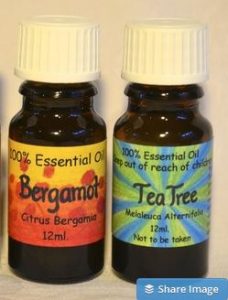 Every so often clients ask me about fragrance oils vs essential oils. A lot of clients don’t know much about aromatherapy or the oils used, so I guess it’s natural, but for me the difference is quite clear.
Every so often clients ask me about fragrance oils vs essential oils. A lot of clients don’t know much about aromatherapy or the oils used, so I guess it’s natural, but for me the difference is quite clear.
Essential oils are naturally extracted and ‘whole’. They are are naturally occurring substances found in different parts of plants – the blossom, fruit, leaf, stem, bark, wood or resin. They’re what I use for holistic healing.
Fragrance oils are manufactured scents. They are artificial, and they contain artificial substances. Some are designed to smell like a natural product – others might smell like bubble gum or ‘summer breeze’ or so on.Fragrance oils are mostly used in perfumes, cosmetics and flavorings. They are also used by soap and candle makers. But I would never use them for aromatherapy.
It’s like the difference between natural fibres like silk, linen and wool, versus polyester and nylon. I know what I prefer next to my skin!
How are essential oils made?
Most essential oils are pure distillations of flowers, herbs, roots, or resins. A small number are made using solvent extraction methods. They can contain anything from 50 to 500 different naturally occurring chemicals. Many components in essential oils are complex and difficult to make synthetically. Some of them have not even been properly identified yet.
Because they are made from completely natural ingredients, it’s important to pay careful attention to quality. Even if you use the same part of the same plant, you may get a slightly different oil composition depending on the location it grows in, the season or the weather. I only use essential oils from companies with high quality standards, like Black Sheep Farm Oils.
Some plants produce a lot of oil naturally, so extraction is relatively easy. Citrus is an obvious example. It’s easy to grow and has a lot of oil.
Other oils are much harder to produce. Rose, for example. They say it takes a thousand petals to create one drop of oil. For this reason, rose is pretty much the most expensive essential oil there is.
Why use essential oils?
The huge range of naturally produced ingredients in essential oils affect the body in all sorts of ways. In my holistic healing and aromatherapy practice, I use a wide variety of oils (there’s a list of my favourite aromatherapy oils here) to get benefits including:
- stress relief
- relaxation and reduced anxiety
- pain relief
- improve emotional balance
- re-energising
- relief from rashes, psoriasis and eczema
- lessening of menstrual and menopausal symptoms
- overall well-being
Many essential oils also help soften and moisturise skin, and feed the hair. So they may make you look younger as well as feel younger!
Some essential oils are very strong – sometimes too strong for direct contact. So you have to be careful in using them. For example, cinnamon can irritate the skin, but it’s also a great antiseptic. You need to get the balance right and that’s why training and experience are important.
Why use fragrance oils?
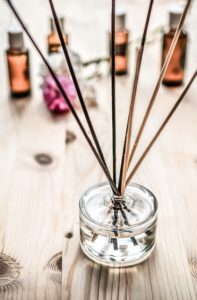 Fragrance oils generally smell the same as the equivalent essential oil – unless you have the nose of a master perfumier! – but they don’t have so many ingredients. They’re fine if you want a scent or a flavour, since that’s what they’re made for, but the manufacturers don’t put all those trace components in. It’s how they keep the cost down.
Fragrance oils generally smell the same as the equivalent essential oil – unless you have the nose of a master perfumier! – but they don’t have so many ingredients. They’re fine if you want a scent or a flavour, since that’s what they’re made for, but the manufacturers don’t put all those trace components in. It’s how they keep the cost down.
So if you buy lavender fragrance oil, for example, it will smell like lavender. And that may help you relax because you like the smell and you already associate it with relaxation. But you’ll never get the other benefits you could with lavender essential oil. Benefits for treating coughs, insomnia, arthritis, muscle aches, wounds, insect bites, burns and so on.
It’s simple really – only use fragrance oils for fragrance!
For real healing, get help from an experienced, expert practitioner who not only knows about the oils, but develops a plan tailored to you as well!
Remedial Massage Therapy – Questions you may have
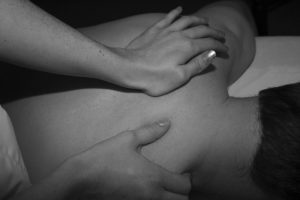 Everyone’s heard of massage, but not everyone knows about the different kinds of massage. So today I’d like to explain what remedial massage therapy is, and answer the commonest questions people have.
Everyone’s heard of massage, but not everyone knows about the different kinds of massage. So today I’d like to explain what remedial massage therapy is, and answer the commonest questions people have.
What is Remedial Massage Therapy?
Remedial massage is based on the Swedish massage tradition, but with a particular focus on treating issues rather than simply general relaxation. (That’s what ‘remedial’ means, after all!)
Remedial massage often treats a particular condition such as frozen shoulder, arthritis, a painful knee, a sports injury or so on. But it’s also helpful when you don’t have a specific diagnosed condition. You get a very thorough, precise all over massage, which irons out any areas of tension or knots. And most of us can benefit from that to help with our busy lifestyles!
Before treating anyone, I interview them to learn about conditions and circumstances. As a trained and qualified masseuse, I also identify knots and tight spots during massage, so work on them appropriately. Remedial massage at A Holistic Healing Centre is always tailored to your specific needs.
Does remedial massage therapy hurt?
The short answer is, it depends who’s doing it!
Some people believe “no pain, no gain’. Not me. I believe in minimum pain, maximum gain.
So if I’m giving a massage, and you say it’s too hard, I reduce the pressure. Everybody’s sensitivity is different. Also, sometimes you don’t know a spot is tender until you apply a bit of pressure.
How long is a remedial massage therapy session?
The commonest session duration is probably an hour.
Some people, if they’ve been before, might only need a half an hour top-up. But in this case, I need to just concentrate on one part of the body.
So if you’re looking for overall well-being, you’ll need the full hour. If I’m treating a specific injury, a half hour may be enough on follow-up visits.
Do you have to undress?
Clients do have to undress, but I respect people’s modesty.
I usually just tell people to get undressed down to their undies – and I give them privacy to do it. Then whatever areas of the body I’m not working on are covered. Usually I use towels to cover you. Sometimes, if it’s very hot in the summer, just a sarong.
What kind of oils do you use in remedial massage treatments?
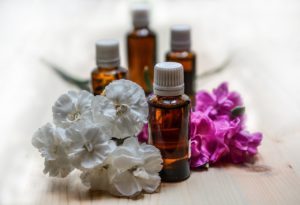 I use a water disposable almond oil for massage. That means that it washes easily out of the clothes.
I use a water disposable almond oil for massage. That means that it washes easily out of the clothes.
Additionally, I use a combination of essential oils, depending on where the person’s at physically, mentally & emotionally. That’s because I’m giving a holistic treatment. It includes remedial massage as a core element, but it’s much more than that.
Some people worry about acne or skin problems from the massage oil, but it’s quite rare. In over thirty years, only one or two people have developed a little redness. And in that case, I use an alternative oil. Also some people already know they have sensitivities to certain oils, so if they tell me, then I don’t use that particular oil.
How many remedial massage sessions does it take to feel results?
You usually get some results after the very first session.
It just depends on the problem – how long it’s been an issue, whether it’s ongoing, whether you’re putting strain on your body still. Those all affect how much treatment is needed. Some people just come once. Some people might have a series of treatments weekly – others choose to have a regular monthly treatment as a way of keeping healthy & nipping any problems in the bud.
Take a frozen shoulder, for example. That’s usually between 2 and 8 treatments. But 8 is very rare.
Back pain is another common complaint. Sometimes it only takes one treatment to resolve. But usually if people are in pain, I like to recommend acupuncture as well as remedial massage.
Combining acupuncture, massage and aromatherapy gives a much more powerful and potent treatment than just remedial massage on its own. If you’re in pain, it can be very difficult to handle any deep work because it’s too painful. Whereas, once acupuncture has released many things on different levels, including an endorphin release, then I can work a bit more deeply without it being painful. So the combined treatment tends to reduce the number of sessions because I can work more effectively in each session.
Are there times when you shouldn’t have remedial massage?
Sometimes, if you are really sick, you might not feel like anything except to be in bed. But if you’re well enough to come and have the treatment, then usually it’s beneficial.
If you’re pregnant, you can still have massage all the way through. There are special techniques I use. Also, I have supports for women who can’t lie on their front so easily later in a pregnancy.
So there you have it.
There are lots of different remedial massage therapists, and each one will treat slightly differently. But if you decide to try A Holistic Healing Centre, you can rest assured that:
- your massage won’t hurt
- your modesty will be respected
- only pure, water-disposable oils are used
- holistic treatment will keep the number of sessions to a minimum
Start feeling better. Book a remedial massage treatment today.
Dorothy Hall’s Cold Remedy (and other natural cold and flu treatment tips)
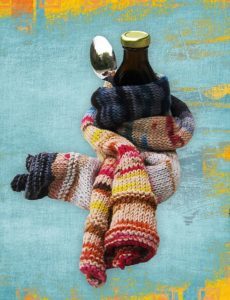 At certain times of year colds and flu are everywhere and everyone goes down with them. So what natural treatments should we be using to avoid getting a cold or flu?
At certain times of year colds and flu are everywhere and everyone goes down with them. So what natural treatments should we be using to avoid getting a cold or flu?
And if we do get one, what do we do about it?
Avoid getting colds and flu in the first place!
Start with the basics. You should get ideally a balance of good sleep, good food, exercise and sunshine.
The most beneficial essential oils overall are eucalyptus and tea tree.
A good night’s sleep will ensure you are refreshed, so that your immune system is strong. To help sleep at night, try lavender. Having a bath with lavender and marjoram in the evening will help induce a good night’s sleep.
What about when you feel like you’re coming down with a cold or flu?
Usually I take about half a teaspoon of vitamin C powder in some fresh lemon and orange juice. About 1,000 milligrams will give your immune system a bit of a kick start. Then have about 500 milligrams every couple of hours to keep boosting the immune system.
Another thing is, these days people’s lives are so busy and stressful. Allow yourself some rest. Have a bit of time out, time in nature. Enjoy the sunshine, fresh air and so on.
When the precautions fail and you end up with a cold or a flu – what will ease the symptoms and help you get better faster?
First, keep up the vitamin C. Not just tablets, try fresh juices – lots of fresh fruit and fruit juice. Rest.
If you’ve got sinus problems, steam inhalations are very good. You can use tea tree and a little bit of eucalyptus. Peppermint oil is very good for clearing the sinuses too.
Then there’s coughs and sore throats. Apart from the oils I’ve already mentioned, you can also use thyme. Plus, a little bit of sandalwood on the outside of the throat is very good for bronchitis and coughs. Lemons are good too. Have a slice of lemon with the rind on it, because that’s rich in bioflavonoids. And of course manuka honey is extremely good for infections. It will help to soothe the throat, too, which is why so many people drink honey and lemon.
Dorothy Hall’s cold remedy
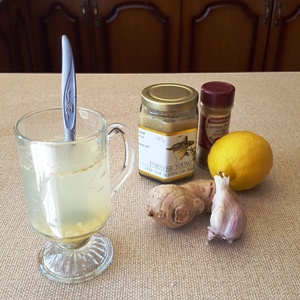 Best of all is Dorothy Hall’s cold remedy. (Dorothy Hall was a founding member of the Australian Traditional Medicine Society and author of several books including ‘The Book of Herbs‘) It’s good to have at night just before you go to bed. You get all warm and you sweat it out. Essentially, the remedy raises your body temperature so it kills off the virus.
Best of all is Dorothy Hall’s cold remedy. (Dorothy Hall was a founding member of the Australian Traditional Medicine Society and author of several books including ‘The Book of Herbs‘) It’s good to have at night just before you go to bed. You get all warm and you sweat it out. Essentially, the remedy raises your body temperature so it kills off the virus.
Here’s the recipe for Dorothy Hall’s cold and flu remedy:
Put the following in a cup:
- a clove of grated garlic
- a little bit of grated ginger
- a little bit of grated lemon rind.
Pour a couple of inches of boiling water on top and let it stand for about 5 minutes. Then add
- the juice of a lemon
- a pinch of cayenne pepper
- honey to taste.
Drink the liquid, eat the solids with a teaspoon and then jump into bed!
Plenty of rest and you’ll be better in no time!
My 10 Favourite Aromatherapy Oils
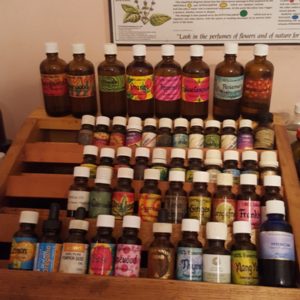 Today I’m looking at my favourite aromatherapy oils – the ones I use all the time in my practice because I find them most effective.
Today I’m looking at my favourite aromatherapy oils – the ones I use all the time in my practice because I find them most effective.
1. Let’s start with lavender.
Everyone should have lavender in their first aid kit because it’s all-round wonderful.
- Lavender is very good for relaxing people.
- It’s good for headaches.
- It’s good for pain, for sharp shooting pains.
- If someone has insomnia, it will help them sleep.
In fact, lavender helped reactivate aromatherapy in modern times.
A chemist by the name of Rene Maurice Gattefosse burned his hand really badly in a laboratory explosion. The nearest thing to him was a vat of lavender oil. Instinctively, he put his hand in the lavender oil. It not only helped take away the pain, his hand healed without any scarring too. And that led to the rebirth of modern aromatherapy
2. Geranium
I love geranium, particularly as a hormonal balancer and a mood balancer. It helps with the hot flushes of menopause, and with symptoms of PMS.
People often say it’s particularly good for females, but it helps males too. Both men and women have times of emotional change. Life can be a roller coaster, and geranium just helps anyone be a bit more stable & balanced while they are going through emotionally difficult times.
We all have roller coaster type experiences, men and women.
3. Clary sage
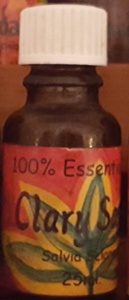 The French meaning of clary sage is ‘clear sight’. It’s the most euphoric of the essential oils.
The French meaning of clary sage is ‘clear sight’. It’s the most euphoric of the essential oils.
It’s extremely relaxing. As an anti spasmodic, it’s very good for those tight tense muscles.
I’m not particularly fond of the smell of clary sage, but I like its effects.
4. Bergamot
Bergamot is a lovely balancing oil, energy wise.
If you’ve got too much energy it brings you down to the middle line. If you haven’t got enough, it brings you up to middle line.
Bergamot takes away the anxiety that leads to either over eating or under eating. So for any sort of anorexia or over weight issues, it’s an excellent oil. It’s a good aromatherapy oil to use as an anti depressant.
Another use for bergamot is the treatment of any sort of urogenital infections, e.g. cystitis.
5. Rosemary
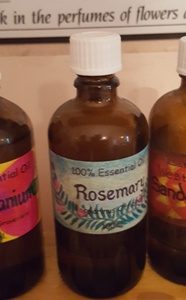 We all know ‘rosemary for remembrance’. But it’s not just the memory rosemary is good for.
We all know ‘rosemary for remembrance’. But it’s not just the memory rosemary is good for.
It’s an excellent tonic for the liver.
Also, it’s a very stimulating oil so it’s good for people who want lots more energy. A lot of people are in need of rosemary these days – everyone is overworked, over stressed, and really quite fatigued. The only contraindication is for people with high blood pressure.
6. Frankincense
I wrote about frankincense before, but here are the main points again.
The church traditionally used frankincense to help people fall into a natural state of prayer and meditation. It was one of the gifts that the 3 wise men gave to Jesus – obviously it was highly treasured.
Frankincense was used to cast out evil spirits – nowadays it casts out mental negativity.
You can combine it with lavender to strengthen people who are feeling a bit vulnerable.
It also deepens the breathing, so it’s good for any sort of lung problems.
7. Rose
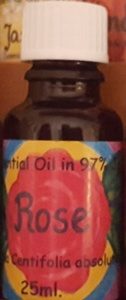 Rose might be less exotic than frankincense, but in fact rose is the most prized of the essential oils. It’s the most expensive, too!
Rose might be less exotic than frankincense, but in fact rose is the most prized of the essential oils. It’s the most expensive, too!
That might be surprising because there are roses everywhere, but it takes a ton of roses to make a very small amount of rose essential oil. And as with all the essential oils, it is actually 70 times more potent once it’s been refined.
So what do we use rose for?
It is specifically for the heart chakra, for stimulating love of self and love of others.
The rose is very balanced between its roots, branches, stems and flowers. Rose oil is very good for mental, emotional and physical balance.
Rose aids hormonal balance as well, so it’s another aromatherapy oil to use for menopause and PMS. And that ‘love of others’ effect can help you get on better with your husband – which you may need a lot during menopause and PMS! You just put a little bit on your heart chakra.
8. Eucalyptus
A true blue Aussie aromatherapy oil, eucalyptus is wonderful for asthma, any sort of coughing or breathing issues. It’s lovely to have an oil burner in your room while you sleep. If there’s any infections around the place, use eucalyptus oil in the burner so that other people in the room are protected.
9. Tea Tree Oil
Another Australian oil, but totally different! Tea tree is wonderful because it is antibacterial, anti viral, and anti fungal.
It’s marvelous particularly for viral and fungal infections that you want to treat. There aren’t many natural or pharmaceutical things that actually treat fungus or viruses. Many people don’t realise that antibiotics only actually kill off bacteria. So tea tree oil is very valuable from that perspective. Athlete’s foot, for example, is fungal.
Tea tree oil is also used a lot in hair conditioner and skin lotions as well. One young girl who visited me left behind a facial scrub that had tea tree in it. It helps keep the skin clear of bacteria and stuff, which is great for young people whose hormones haven’t settled down.
Actually, it’s also good for animals. For example, use it to wash your dog because it will repel the fleas, ticks and so on. That’s a useful tip, especially with summer coming up.
10. Ylang Ylang
Ylang ylang – last but not least! It’s just such a beautiful smell. The oil has aphrodisiac properties too. No wonder it’s used so much in perfume.
Actually there are a few aphrodisiacs in my list of favourite oils!
Rose acts as an aphrodisiac by stimulating love, love for yourself and love for another.
Clary sage and ylang ylang together is a powerful aphrodisiac combination, too. It’s meant to be good for people with anger – so maybe use it for kiss-and-make-up sex?!?
Anyway, that’s my list of favourite aromatherapy oils. You can see there’s a mix of them, for a whole range of conditions.Of course I don’t limit myself to just these few oils. There are so many to choose from, and it’s a matter of finding the right mix for each person’s specific situation. But however varied my aromatherapy combinations are, most of them have at least one oil from this list.
I use aromatherapy in most of my treatments, but I can also make up a personalised mix for you to take away and use at home.
For more information, contact me at any time.
The Benefits of Frankincense
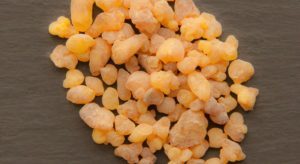 In a recent post about natural treatments for depression, I mentioned frankincense. That sparked some interest. People are more familiar with flower-based essential oils like rose or lavender, but they don’t know so much about the benefits of frankincense.
In a recent post about natural treatments for depression, I mentioned frankincense. That sparked some interest. People are more familiar with flower-based essential oils like rose or lavender, but they don’t know so much about the benefits of frankincense.
So today I’m going to look at frankincense in more detail.
What is frankincense?
Frankincense is a small tree, official name Boswellia frereana/carterii/sacara. native to North Africa and some Arab countries. It can grow in very little soil with hardly any rain. Most of us in the West have heard of it due to its mention in the Bible. But frankincense was prized long before Jesus. People have been burning it on altars and in temples since earliest antiquity.
When the bark of the frankincense tree is damaged, it exudes a resin in drops or tears. The essential oil is extracted from this resin.
The benefits of frankincense in natural healing
Mental and Emotional Balance
Frankincense assists with breathing and being able to breathe more deeply. It is associated both with taking breath in and with releasing breath. The process of breathing out is releasing the negative. Breathing in and out relates to taking in life and giving out back to life as well.
In the olden days, people believed frankincense would cast out evil spirits. In today’s time, it casts out negative thoughts, which is why it’s so good for depression. A scientific study in 2008 found that ‘incensole acetate, a Boswellia resin constituent… …lowers anxiety and causes antidepressive-like behavior.’
Frankincense helps take people into a deep meditative space. It helps you slow down and deepen the breath. Breathing more slowly and deeply soon produces feelings of calm. So you can see how that leads to prayer and meditation.
The Roman Catholic Church has traditionally used frankincense incense. It both keeps evil spirits away and also gets people in the right frame of mind for worship. And of course that’s one of the reasons the Three Wise Men gave it to Jesus.
Used with lavender, it’s very good for strengthening people when they’re feeling a bit vulnerable.
Treating Physical Conditions
The benefits of frankincense don’t stop there. It can help with physical problems as well as mental and emotional balance. It’s been an ingredient in skincare and cosmetics for centuries. It’s a natural antiseptic too, so it’s good for wounds and infections.
Another study in 2012 showed that ‘the resin from the trunk of Boswellia trees contains anti-inflammatory substances.’ Conditions involving inflammation range from asthma (notice the breathing again!) to Irritable Bowel Syndrome and arthritis.
It’s difficult to produce the ingredients which help against inflammation artificially. Nature only puts them in frankincense. So this scrubby little tree really is as valuable as the Wise Men thought it was!
Natural Treatments for Depression
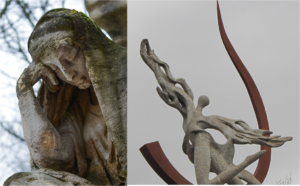
Over the years I’ve had a good number of people come to me with depression and depression-related symptoms. So today I’m looking at the best natural treatments for depression.
Association of depression with the liver
Depression, according to one mind-body and connection expert, is caused by anger. Anger because you don’t have what you want. Anger at the difference between your ideal of how your life should be and your reality. So it’s a matter of looking at where in your life this is the case and empowering you to look at the particular problems causing your depression, then helping you to address those issues. That’s the metaphysical point of view.
From an acupuncture point of view, suppressed liver energy is often a trigger for depression. Which is funny because the emotion of the liver is anger and frustration. So the metaphysical and the acupuncture theory align very well.
Western scientific studies also support the idea that acupuncture can assist with managing depression.
Then there’s herbal remedies like St. Mary’s Thistle, which is very good both as a liver protectorant and a liver detoxifier. So many natural treatments for depression are about the liver.
The importance of diet and stress management in managing depression
A lot of people these days are eating too much or drinking too much. There are also a lot of toxins in the food that we eat, or in the environment. So I try to inquire about diet and I may recommend dietary changes as well. Sometimes people only come for an hour, so it can be too much to cover. Of course if people are having a longer treatment, or if they’re having a sequence of treatments, then we can deal with different things as part of our holistic course of treatments.
If there isn’t time to discuss diet in detail, it’s always worth considering a multi-vitamin. Stress can deplete vitamins in the body, especially the B-vitamins. Modern lifestyles filled with junk foods are vitamin-deficient..
Why acupuncture and massage work as natural treatments for depression
When you treating depression holistically, you can see how the mental and emotional stuff goes down to the physical body. It gets locked in certain places depending on what you’re feeling. If it’s in the shoulders, you’re feeling overburdened. If it’s the right shoulder it’s concerning all that needs to be done. The left shoulder, by contrast, is connected to your creative, nurturing side. If the neck stiffens up, then you’re seeing things in a certain way and other people are trying to implement another way of doing things. So the tensions get caught in various parts of your body and manifest according to where you’re mentally and emotionally stressed with what’s happening in your life. That’s where the acupuncture and massage come in.
Looking at natural treatments for depression, there are some very good essential oils too.
- Clary sage is one of the most euphoric and antispasmodic oils, and very relaxing.
Bergamot is another good one. - There’s also rose. Rose is the most balanced between the branches, the roots, and the leaves. It feeds the heart, plus it’s hormonally balancing and quite uplifting.
- Frankincense is a good oil to use in treating depression too. In the olden days, frankincense cast out evil spirits – in today’s time, it casts out negative thoughts & helps people go into a meditative space.
How many treatments will you need for depression?
As a general rule, depression is quite hard to solve with one treatment. The number of treatments needed depends on how long and how badly depressed you’ve been. It’s always a very individual thing.
There are times when no one can cure depression. All you can do is manage it. The circumstances causing the depression may be too complex, or impossible to resolve. For example, I had one client who was in a very bad family situation. She came from a culture with arranged marriages and her parents had actually given her to one of her cousins, but something happened and she ended up with his brother. Only she had an affair with the one that she was supposed to marry in the first place and had an illegitimate child too. Then there was another falling out with the family some years later, and some money issues… Unsurprisingly, she was suffering from very severe depression. She would come for a few treatments, the depression would be resolved, and then new family issues would come up. But her situation was quite extreme.
For her, the treatment included acupuncture and massage – and a lot of counseling. A lot of hugs.
My practice is truly holistic and treats the whole person, physical, mental, emotional and spiritual. When you’re using natural treatments for depression, it’s important to have a space where people can open up. So they can share stuff they can’t share with other people – because they know you’ll keep it truly confidential. Of course it may take a few treatments to reach this stage, but it’s a good feeling when clients trust me. And it helps me to help them.
Getting the best treatment for you
It’s important to remember that depression is very individual. The best treatment depends on your circumstances. What’s happening in your life. How you react to it. Even Western medicine recognises this – there are so many different medications out there. Doctors will often try you on two or three different ones before they find one which works, which can take ages. By treating depression with natural therapies, not only do you avoid all those medications upsetting your own personal balance, much of the time you experience relief from depression much more quickly.
If you’re feeling depressed or down, why not consider natural therapies? Some things you can try at home – like changing your diet or using essential oils. If you need more, contact me to book some treatment.
Acupuncture Side Effects – What You Need to Know
 A lot of people who haven’t had acupuncture are scared about the side effects.
A lot of people who haven’t had acupuncture are scared about the side effects.
If that’s you, there’s no need to worry. Acupuncture side effects exist, but they are very minor. Read the list and you’ll see what I mean.
Pain
People often associate acupuncture and needles with the doctor’s hypodermic. So they think of them as being very painful. In truth, acupuncture needles are extremely fine. If they’re inserted properly, mostly they’re totally painless. Occasionally you feel something, but it’s just like a little mosquito bite at the worst.
Lots of people are scared of needles – me included! When I first studied acupuncture, my main fear was because I hated needles myself. How was I going to stick needles into other people?
I remember the very first person who actually asked me for acupuncture.
As far as I’m aware, he’d never had acupuncture anywhere else. I was still studying. I had my 2-year old son running around the place, and this man was lying on my couch ready to go. He was my very first acupuncture client, so I was a little bit nervous.
Then he said, ‘You’ve done practicals at college, haven’t you?‘
And I said, ‘No. No I haven’t.‘
But he still let me treat him, which was very brave of him. And it turned out great.
I gave him four or five treatments in all. He’d been having knee problems – and he was a painter who had to be up and down ladders all the time. Sometime later he dropped in and told me that he didn’t have knee problems any more. So even for two complete newbies, it worked!
Other Feelings When the Needles Go In
When the needle goes in, usually you don’t feel it. Sometimes you might get like a little mosquito bite or a twitch. There are some other things which can happen too.
Numbness, cold or heaviness
Sometimes you get a numb feeling. A heaviness, heat or cold.
That numbness and heaviness can feel like you’ve been anaesthetised. In China they actually do operations on people when they are fully conscious. Just using acupuncture rather than an anaesthetic drug. This is particularly good for older people who would not tolerate an anaesthetic or if say the surgeon is working on the brain & needs the patient to be conscious & give them feedback. Obviously, acupuncture doesn’t have the same risks of anaesthesia. Or the after effects when an anaesthetic drug is wearing off.
Shocks and tingling
Sometimes you get a feeling a bit like an electric shock.
This can happen if the energy’s blocked in a meridian and you put a needle in a specific acupuncture point that gets the energy moving again. You can get a shoot of energy in that meridian which feels like a little electric tingle.
If you do get that little shock, it usually goes away. Sometimes after a treatment, people feel those little tingles of energy. It’s because things are very different in the meridians. The energy is starting to flow again, so you might be more consciously aware of that.
But all things that you might feel, none of them are actually harmful.
***
Just by the way, all the needles I use are sterile and individually packaged. I only use each needle once. So you don’t need to worry about cross-contamination either!
Acupuncture Side Effects After Treatment
Bleeding or Bruising
On occasion an acupuncturist can hit a vein or a blood vessel. Sometimes it bleeds. You might end up with a haematoma or a small bruise where you’ve hit a vein, but that should usually clear within a short period of time.
So just be careful if you’re having needles in the face and they might show! Or you might not be worried. On the rare occasions I’ve seen this, the mark has been tiny.
You’re more likely to get bruise marks if your acupuncture treatment includes cupping. Cups are rarely used where the marks will show. I do have cups but I very rarely use them, so there’s little risk of that in my practice. You can always discuss this with your acupuncturist.
Tiredness
You can end up tired as a side effect of acupuncture. Ideally it’s good if you can go home and have a bit of a rest and relax. If you can just go with the flow, it lets the energy systems readjust.
Of course, the tiredness may just be because you were tired already but you haven’t admitted it to yourself.
So many people these days are pushing themselves to do more and more and trying to keep up with more and more. The adrenals are pushed to the utmost. The energy systems are pushed to the utmost. Sometimes what they really need is just to rest and relax, but they are unable to or don’t give themselves the time to do so. If a treatment helps you allow yourself that time, it’s another good acupuncture side effect!
That’s it for acupuncture side effects. There’s nothing dangerous, there’s really very little chance of discomfort. In my experience, pretty much everyone feels wonderfully relaxed afterwards.
So my suggestion is, come along and give it a go. For first timers, just make sure you haven’t got anything too serious or demanding set up for afterwards, so you can see what it does for you.
Natural Stress Relief with Aromatherapy and Essential Oils
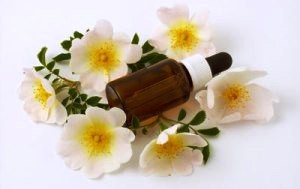 Natural stress relief is an increasing part of my practice.
Natural stress relief is an increasing part of my practice.
So many people these days are going through long periods of stress. When you have a look at current lifestyles – both people working; dealing with kids; just trying to find a holistic balance in life for yourself and other members of your family… Juggling all the commitments and having to keep up with modern technology and so on, means a lot of people are under almost continuous stress. Eventually it creates health problems, physical, mental, or emotional. Stress is a big issue. And natural stress relief techniques are much kinder on your body than drugs, whether that’s prescription, alcohol or something you buy on the street!
Using Aromatherapy and Essential Oils for Natural Stress Relief
Aromatherapy is a core part of my treatment for stress relief. I have a number of favourite essential oils for handling stress, including:
Lavender is always very, very relaxing.
Bergamot is a very balancing oil which takes away anxiety. It’s particularly good for the kind of anxiety which leads to under or overeating when you’re stressed. It’s a great energy balancer.
Chamomile is also an extremely calming and relaxing oil.
Clary sage is interesting. I’m not so keen on the smell, but I love its properties. It’s the most euphoric of the essential oils – by which I mean it makes you feel a high. It’s a natural way to get high instead of those terrible drugs that some of our youth use these days. (Well, they’ve probably been used for a long time, but they’re definitely used now.)
Clary sage is also an anti-spasmodic. When people are under a lot of stress, they can end up with a lot of very tight, tense muscles and clary sage is extremely good to help along with some remedial massage and/ or acupuncture to release same.
Other oils I often use for stress relief include jasmine, marjoram, neroli, and rose. Exactly which oils to use, and in what quantities, depends on the individual.
Designing a Personalised Stress Relief Treatment Plan
I treat everyone who comes to see me individually. So even if two people come to me for stress relief, I’ll use different essential oils. I like to have a bit of a chat with you beforehand and find out exactly what you’re going through. Then I work out the combination of oils that will best balance out whatever it is you’re experiencing at this particular point in time.
Short-term stress vs long term stress
A short-term event that’s causing you a lot of stress needs different treatment from a long-term draining lifestyle or situation. So in the first case, you might need more relaxing oils.
But if you’re going through a long period of stress, you’ll also need re-energizing oils because you’re burnt out and exhausted. And in this case it’s very good for you to have regular massages as a way of dealing with the stress and recuperating.
The ways different people react to stress
It’s not just about the kind of stress people are going through, short-term or long-term. There’s also a difference in the way that different people react to the same stress.
For example, somebody might get really knotted, tense muscles, whereas somebody else might not be able to sleep. So one would be physically tighter, which the other would just be more tired. Some people hold it all inside and try to carry on regardless, while others let it all out and then everyone else around them is affected. Sometimes, the stressed person may actually feeling okay about it all, but there’s a trail of destruction behind them!
So I explore how you’re reacting to the stress as well as what’s causing the stress. That affects the treatment too.
How should a stress relief treatment be?
Obviously stressed people are often very busy and it’s hard to find the time for treatment.
If really the only time you can spare is a half hour, then a half hour is great because at least you’re doing something and you will get some benefits. (Except it doesn’t allow much time for a good massage if you’re the kind of person who gets knotted muscles.) It can also help if you’re on a tight budget with money – and people who have money problems are often stressed. But sometimes investing in some natural stress relief can give you the strength to tackle the issues causing the stress too!
You also need to consider what works for you. Having two half hour sessions a couple of weeks apart works for some people. For others, a full hour session once a month works better. It’s very individual.
What can I do after treatment or between treatments?
You want the benefit of your treatment to last as long as possible, and there are some ways to help with that. One option I offer is to provide aromatherapy oils and creams which you can use at home.
One lady I saw recently for a shoulder problem, which she’s had for two years. During her treatment she mentioned that she’d also been having some sleep problems. She wanted to know if there were any oils or flower essences which I could make up for her. So I’m made up two preparations for her. An aromatherapy cream for her to massage into the areas where she’s been experiencing tension, then also a special oil for her to use in the bath. It’s a home aromatherapy oil to help her relax and get a good night’s sleep.
Now she just has to find time for a bath before bed!
Actually, so should most of us! Sometimes at the end of the day you just fall into bed and you can’t go off to sleep. It’s much nicer to have a ritual to relax and prepare for bed. Allow yourself an aromatherapy bath – maybe 20 minutes or something of uninterrupted time. Light a few candles. Enjoy a bath with the oils and perhaps some Epsom salts, just so that you can truly just relax and go into having a good night’s sleep.
To find out more about natural stress relief and get a personalised treatment plan, contact me at any time.
Acupuncture for Fertility – My Personal Experiences
 Anxiety and stress are common for women who are having difficulty conceiving. For that reason alone, I believe in acupuncture for fertility problems. If your body is more relaxed, you are more likely to conceive.
Anxiety and stress are common for women who are having difficulty conceiving. For that reason alone, I believe in acupuncture for fertility problems. If your body is more relaxed, you are more likely to conceive.
It certainly worked for Bianca.
She came to me in June 2015 after a series of miscarriages and IVF treatments. Now, in April 2016, she’s at home with her baby girl, born last month.
Please note, though, that western scientific studies have not found evidence that acupuncture itself improves fertility. There are studies showing it improves the success of IVF, and research is ongoing.
What are the generally received theories around acupuncture and fertility?
Acupuncture works on the energy systems of the body. It’s not just qi, it’s also blood circulation. The whole aim of acupuncture is to release blockages.
Better flow of blood and qi in general means less stress. There’s also a suggestion that acupuncture may improve blood flow to the uterus, release blockage in the female organs and boost the ovaries.
I still remember my very first acupuncture patient who became pregnant, nearly 20 years ago. I was actually treating her for back pain at the time! She was quite a large lady, with 2 prolapsed discs. She was booked in for IVF, and when she went to the doctor, he told her she was already 7 months pregnant! Imagine her surprise! He asked what she’d been doing, and the only change she’d made to her life was the acupuncture with me.
Another interesting case is women who have been on the Pill, but now want to become pregnant. The Pill suppresses the body’s natural hormones and rhythms. Even when you stop taking it, your body is out of sync. Acupuncture can help to realign the body and get natural cycles going again.
Is acupuncture alone enough to treat fertility?
There’s no solid evidence that acupuncture alone can overcome infertility issues – the story of my first patient is just one story and it could be chance! But it’s not really the right question to ask for my approach. As a holistic healer, I aim to treat the whole person, using my training and experience across many therapies.
When patients want help conceiving or bearing a child, I need to know all about them. So many factors affect fertility. Weight. Lifestyle. Diet. Regularity of the cycle. Even how long you’ve been trying to conceive – it affects your stress and your hormones.
Understanding all of these means I can develop a personal plan for you the whole person. Acupunture is likely to be a big part of that. But it may also include massage, aromatherapy, dietary changes and other treatments.
By the time someone comes to me for help with fertility, they are in serious need. Why not do everything possible to help them conceive?
Can you have acupuncture while you’re having IVF?
Acupuncture can be used alongside just about any treatment. It doesn’t interfere or interact in the way a drug might! So combining acupuncture and IVF is just fine. In fact, acupuncture can help manage side effects of the IVF drugs. Some studies say it improves IVF success rates, but the numbers don’t add up to certainty yet.
IVF can be quite demanding for the body. All those injections and hormones. It’s not cheap either. While it works for some, I wish more people were aware of natural alternative treatments and tried those first.
Many of my clients using acupuncture for infertility have come to me after IVF failed. Either the egg didn’t implant, or they miscarried.
Should you continue acupuncture once you’re pregnant?
One lady had lost IVF twins at around 4 – 5 months. She was devastated. After a few treatments with me, she stopped coming. A year or so later I met her by chance – with her little boy! She explained that she had fallen pregnant when I was treating her, but had been afraid to come back for fear the acupuncture might harm her baby.
She shouldn’t have worried!
Think back to that first client of mine – the one I was treating for back pain. She went on having acupuncture treatments right up till she was 7 months pregnant and her child was just fine!
Of course if you do conceive, please do tell your practitioner. I’d far rather know because then I can tailor your treatment to look after both you and your baby as well as possible. Some acupuncture points are not recommended during pregnancy. Using other acupuncture points can help carry your baby safely to term.
So if you’re considering acupuncture for fertility issues, remember these key points
- Acupuncture doesn’t interfere with any other treatment like IVF.
- It reduces stress – and if you’re more relaxed your body can cope with other treatments better.
- It’s perfectly safe when you’re pregnant.
- It’s best when it’s used with other treatments in a holistic approach.
For more information about acupuncture and other natural treatments for infertility, just get in touch.
By the way, there’s another funny story about Bianca. She and her husband didn’t want to know the sex of their baby before birth. But her mother-in-law did. She wanted to start knitting! So I took Bianca’s kidney pulse. It indicated a girl – just as her body shape did. I was able to email Bianca’s mother-in-law and tell her in advance, while keeping the surprise for the happy parents. And little baby Mia has plenty of pink woollens to keep her warm.
5 Stress-Reducing, Anxiety-Reducing Strategies for Right Now
It’s that day of the week we’ve all been waiting for. You probably have a few plans for the weekend already. But there you are – exhausted & stressed to the max!!!
Stress and anxiety are two of the most common mental health issues we all suffer from. They give us overwhelming emotions that sap our energy, make us less productive, and make us feel down. And even though we cannot completely do away with feeling stressed and anxious, luckily, there are several stress-reducing strategies we can use right now.
Breathe.
Breathing can work miracles when you are experiencing negative emotions, such as anger. Taking a long, deep breath to calm your mind and body has been scientifically proven to work, and in fact, is the key component of some of the most powerful mind-body exercises like meditation and yoga. Slow, deep breathing is a way to distract the mind from engaging in negative thoughts and emotions. At the same time, the inhalation of fresh air decreases the amount of cortisol – negative hormone produced by the adrenals – released in the body in response to stress. This very simple practice of mindful breathing is very powerful.
Laugh.
Laughter’s the best medicine. Did you know that one good belly laugh also kicks the immune system into gear for the next 36 hours. When you laugh, magical things happen inside your body, one of which is the release of the ‘feel good’ chemicals (endorphins) in your body that promote positive feelings, and reduce stress-inducing cortisol. As soon as you begin to feel that unwanted sensation of stress or anxiety, pause for a while, browse through some joke sites, watch a 2-minute funny video clip, or read a feel-good book. Taking time to laugh every day is a great way to lessen mental fatigue and reduce stress.
Socialize.
Friends benefit your health in so many ways. Make it a habit to bond with your close friends on a regular basis. And when we say ‘bond’ it means spending quality time with them up close, not through Facebook or any social media. Having a cup of tea with a friend can really help to relieve high levels of stress, and recharge your batteries. What’s more, it gives you a perfect outlet to vent your emotions or anything that bothers you.
Write.
Sometimes, it is too hard to understand our thoughts and the emotions we feel. It is hard to even describe them. Getting a pen and paper is a good strategy to have a clearer picture of what you are going through physically, mentally and emotionally. Scribble your feelings onto a piece of paper. Keeping a daily journal does a great job in helping yourself understand your feelings more.
Walk.
Walking is one of the best methods available when it comes to alleviating stress. Walking gives your body an outlet for the build-up of energy that triggers stress, and since it is a form of exercise, walking keeps you fit and healthy as a result.
What if these stress-reducing strategies aren’t enough?
The body self-heals, but sometimes, it’s so far out of kilter that it needs some additional help. That’s where natural healing therapies come in! So if you need something to kickstart or assist your body in its healing process, why not book a treatment session with Janene?
What is the Difference Between Aromatherapy and Flower Essences? Answer to Frequently Asked Alternative Healing Therapies Question
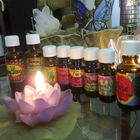 Flower Essences
Flower Essences
Flower essences are not about smell. Nor do they contain any physical part of a flower. They are infusions which capture the energy imprint of each flower. They treat the emotional part of you.
Edward Bach is often seen as the father of flower essences. In the 1930s he developed 38 flower remedies, based on English wildflowers. But many cultures have used flower essences for much longer, including North American Indians and Chinese.
It’s rare to apply flower essences externally. Instead, you take them orally. You can take on their own or add to water. They create a vibrational resonance reaction in the body. Flower essences help people release & transform negative patterns or areas where they may be stuck in their life.
Aromatherapy oils
Aromatherapy oils are for external use only. You can use them as scents, in a bath, or with a massage treatment.
These oils are 70 times stronger than the actual plant, flower, herb, or tree bark they are made from. The oil is strong enough to have a therapeutic effect on the mind, body and emotions.
In general, people are attracted to smells that will have a positive effect on them. For instance, you might have positive memories of love and nurturing associated with the lavender smell of your grandmother’s home. Then the smell of lavender will make you feel loved and nurtured even in adulthood.
Sometimes, smells trigger negative emotions. Alternative Natural Healing expert Janene Stevens recalls one dentist who told her that while at University, he had to dissect rats for one of his classes. The professor burned eucalyptus in the room while the rat dissection was going on. Years later, whenever that dentist smelled eucalyptus, it triggered the unpleasant feeling of dissecting rats.
You can find out more at the following pages:
If you have a health condition which you would like to treat naturally using the power of flowers or oils, why not contact Janene? She treats a wide variety of conditions using many different therapies. She will be able to give you advice and develop a treatment plan just for you.
What is Aromatherapy and Why Does It Work?
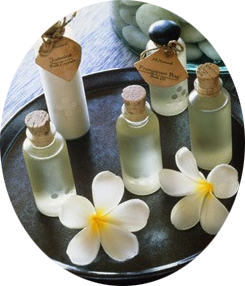 Aromatherapy is the use of essential oils from flowers, trees, and herbs. One drop of essential oil is 70 times more powerful than the original plant because it’s the concentrated oil of the plant. It’s the opposite of homeopathy, which works on the theory of like cures like.
Aromatherapy is the use of essential oils from flowers, trees, and herbs. One drop of essential oil is 70 times more powerful than the original plant because it’s the concentrated oil of the plant. It’s the opposite of homeopathy, which works on the theory of like cures like.
It is believed that the Egyptians were using aromatics in 3000 BC. It was reintroduced in modern times when Dr. Rene Gattefosse became interested in oils because of his family’s perfume company. An explosion in the factory caused him to burn his hand, which he plunged into a vat of lavender oil which he was intuitively guided to do (I believe). The Lavender Oil helped with the pain & his hand healed without infection or scarring. Dr. Gattefosse became fascinated with the healing properties of the Essential Oils.
Aromatherapy works on the theory that certain chemicals in the oil have certain benefits to certain conditions. The synergy of a number of essential oils is more powerful than just one essential oil on its own.The Aromatherapy Essential Oils have powerful healing effect on the mind, body, and emotions.
Click These Links for More Answers About These Alternative Natural Healing Therapies:
How Many Treatments Will I Need ?
It’s difficult to give a clear answer about how many treatments you will need to feel better. Health is a highly individual matter. Everyone has a different healing time.
Janene aims to deliver results from the very first treatment. But feeling ‘a bit better’ and feeling ‘completely better’ are different things.
There are a number of factors to consider.
Holistic healing tends to reduce the number of treatments required
Janene deals with people holistically, combining a number of different therapies. For most people, this means they heal more quickly than if they just had one kind of treatment. Sometimes it might only require one treatment to become pain free. Others may need more treatments.
It also depends on your condition
It also depends on how long you’ve had your condition.
More chronic conditions often take longer to heal. Your body has become used to a specific way of being and behaving. Treatment can reset it, but habits take a time to break.
For example, maybe you have adjusted your walk to minimise pain in your knee or back. You may feel better after treatment, but if you continue walking the way you are used to, you are not using your muscles in the best way and you may find pain returns.
The same effect happens with spiritual and emotional conditions too.
In some
Your own lifestyle affects how many treatments you will need too
You life outside the treatment session has a huge effect. What you do every day may be making your condition worse. Maybe you’re not getting enough sleep – that will tend to make you more stressed, or more anxious, or more depressed. Your diet can have a huge impact too. Janene tries to integrate treatment into your life. So she may give advice about what to eat, or how to get to sleep, or other lifestyle changes you can make.
Do Acupuncture Treatments Hurt?
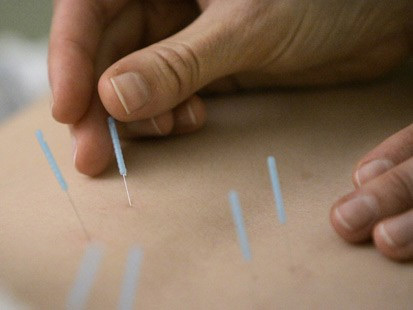 One of the most frequently asked questions from those who are new to acupuncture treatments is about pain. Since an acupuncture treatment involves the use of acupuncture needles, people frequently ask the question, “Do Acupuncture reatments hurt?
One of the most frequently asked questions from those who are new to acupuncture treatments is about pain. Since an acupuncture treatment involves the use of acupuncture needles, people frequently ask the question, “Do Acupuncture reatments hurt?
The answer to the question about whether acupuncture treatments hurt is… Acupuncture treatments should be painless if the acupuncture practitioner knows what he/she is doing!
Mostly acupuncture doesn’t hurt because the needles used for acupuncture treatments are very fine. Quite often people say they don’t feel the acupuncture needle going in at all, even if they usually have a low threshold of pain.
Sometimes people say that when the acupuncture needle is inserted it feels like a mosquito bite. Sometimes when the needle is inserted into a blocked meridian, you might feel something that feels like a little electric shock. That’s a good sign because it means the energy that was blocked has started to move.
As a comparison, the external practice of acupressure is often more physically painful than an acupuncture treatment using needles.
More About Acupuncture Treatments:
How Does Acupuncture Work?
It’s a common question from those new to alternative healing. ‘How does acupuncture work?’
Great question! Let’s answer it.
What is acupuncture treatment like?
Acupuncture means needles. Most of us don’t like them! But don’t worry. Acupuncture needles are extremely fine. So they don’t hurt.
A few people get tiny twinges. That’s good! It means the needle released a blockage.
Needles must go into the correct acupuncture points. There are hundreds of points. Acupuncturists study for years to learn them. (The UTS course takes 4 years.)
Acupuncture is drug-free. You lie on a massage couch and rest. Most people find it relaxing. We usually combine acupuncture with massage and aromatherapy. Even more relaxing!
The traditional Chinese view of how acupuncture works
Chinese medicine uses the concept of qi, or energy. Qi flows round the body on pathways called meridians. Acupuncture points lie on these meridians.
Qi helps balance yin and yang forces. If qi is blocked, they are unbalanced. The body is unbalanced. So you get sickness or pain.
Acupuncture clears the blocks. Qi flows through the body and restores health.
‘Western’ explanations of acupuncture
Many studies show acupuncture works. But Western science is still not sure how. Most theories say it stimulates signalling systems in the body. For example:
- It stimulates the central nervous system. This theory makes sense. Many acupuncture points are near neural transmitters. So the needles trigger neural messages to the brain.
- It produces endorphins, which reduce pain.
- It releases opioids. These also relieve pain.
- It increases blood flow. More red blood cells means more nutrients. Better healing.
Conditions acupuncture works for
So much for ‘How does acupuncture work?‘.
There’s a more important question though.
‘What conditions can acupuncture treat?’
If you ask Western science, acupuncture is effective for:
- pain management
https://www.practicalpainmanagement.com/treatments/complementary/acupuncture - stress
https://www.ncbi.nlm.nih.gov/pubmed/28712475
https://www.ncbi.nlm.nih.gov/pmc/articles/PMC4203477/
https://nhs.georgetown.edu/news/eshkevari-acupuncture-stress-study - fibromyalgia
https://www.practicalpainmanagement.com/acupuncture-fibromyalgia - menopause
https://www.ncbi.nlm.nih.gov/pmc/articles/PMC4874921/
https://aim.bmj.com/content/29/1/27
Also, John Hopkins Medicine says National Institute of Health studies support the use of acupuncture for:
- Nausea after surgery or chemo
- Dental pain
- Addiction
- Headaches
- Menstrual cramps
- Tennis elbow
- Osteoarthritis
- Low back pain
- Carpal tunnel syndrome
- Asthma
When you use acupuncture, it may be used alone or in conjunction with conventional medicine. So it’s worth discussing with your doctor.
Do you suffer from one of these conditions? If so, why not try acupuncture? Or a combined treatment? Contact Janene to discuss what’s right for you.
Zinc, the New Antidepressant?
Zinc: The New Antidepressant?
Serum zinc levels have been found low in patients with major depression. Treatment with zinc appears to have an antidepressant effect. Human trials found that zinc supplementation augmented the effects of antidepressant drugs by over fifty percent.
Levenson, CW, Zinc: The New Antidepressant? Nutr. Rev. 64,1, 2006.
